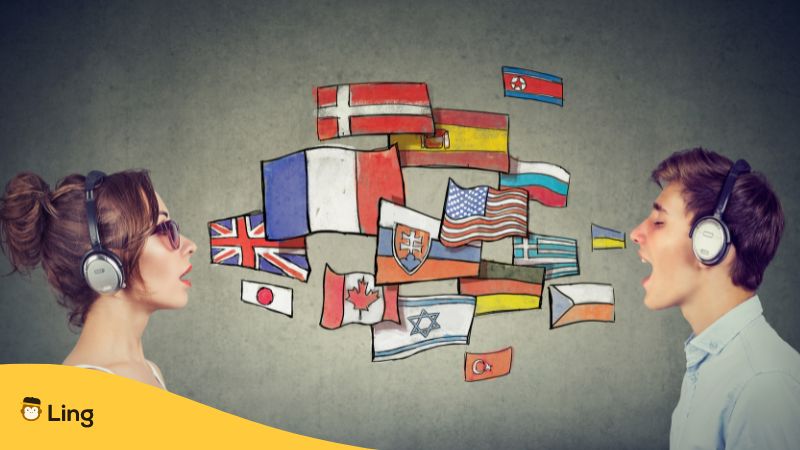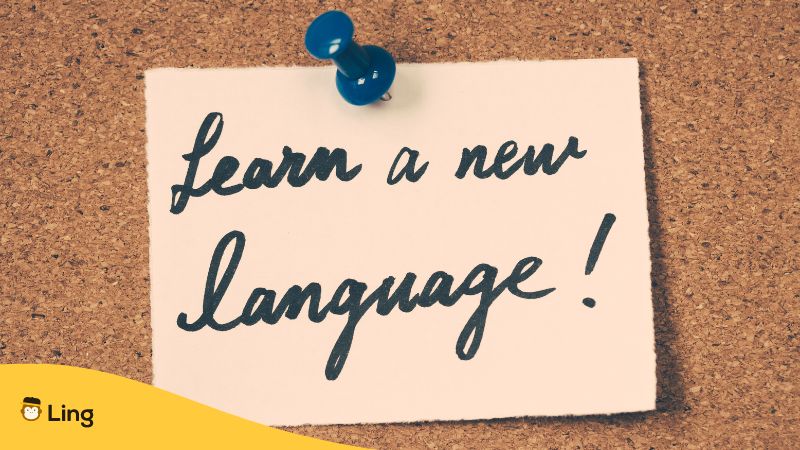After being a globetrotter for a long time, you suddenly find yourself asking – how to become a polyglot? Is it too late to learn many foreign languages? Should you have done it when you were younger, with better memory retention (and more patience!)? Let’s find out how to check this goal off your bucket list and not only become a polyglot but also excel at it!
Why Learn Multiple Languages?
Before learning about the process or discussing how many languages one can master, let’s first define the term. What exactly is a polyglot?
According to the Merriam-Webster dictionary, a polyglot is someone who speaks or writes several languages. To be considered a polyglot, one must be fluent in four or more languages.
If you know only two languages, you are called bilingual; trilingual if you know three. You become a polyglot when you know four or more languages, and if you are fluent in more than six languages, you’re referred to as a hyperglot.

What Are The Advantages of Being A Polyglot?
Imagine how much easier it would be to travel and connect with people of different cultures when you can speak to them in a particular language. Moreover, being multilingual or knowing several languages offers numerous other benefits, including the following:
- More employment opportunities
Many businesses highly value multilingualism, as it enables workers to interact and perform language exchanges with a wider variety of clients, expanding job opportunities for polyglots.
- Improved decision-making skills
Polyglots are better at decision-making as they can weigh several points of view and possibilities.
- Better memory
Speaking many languages besides your native tongue challenges your brain’s ability to transition between different vocabularies and rules and use various languages simultaneously, improving your memory techniques and mental flexibility.
- Improved capacity for problem-solving
Learning multiple languages encourages the brain to think in many different ways, enhancing critical thinking and problem-solving skills.
- Enhanced cultural sensitivity
Gaining knowledge of a foreign language culture, and practices also helps develop a more welcoming and inclusive outlook.
- Improved multitasking skills
Constant language switching and getting exposed to language learning strategies improve multitasking abilities, allowing people to handle numerous tasks successfully.
- Enhanced mental state
Learning languages and speaking other languages have been linked to a lower risk of dementia and cognitive deterioration, improving general mental health.
- More confidence
Learning target languages besides your native language and being able to communicate with others in different languages can raise a person’s confidence and self-esteem.
- Boosted creativity
People who know four languages or more frequently exhibit higher levels of creativity due to their ability to see things from several angles and think creatively.
- Enhanced listening abilities
Multilingualism improves a person’s capacity to hear and understand accents and speaking patterns, which can be useful in different contexts and real-life situations.

Ways On How To Become A Polyglot
Here are the proven ways you can follow if you are determined to become a polyglot:
Master The Language
- Understand the complicated grammar rules of the language
Sentence structure can often be the most challenging aspect of learning a language quickly. Learning the grammar rules of the language you’re studying is essential for structuring sentences correctly.
- Master essential phrases for everyday use
Create a list of the phrases and terms you’ll use most frequently in conversation. Prioritize words you’ll use regularly instead of focusing on obscure terms with limited practical relevance.
- Practice mental translation
Mastering a new language involves learning to think in it. While becoming fluent right away is not necessary, challenge yourself to mentally translate what you see and think in the local language you wish to learn as you go about your day.
- Write in the new language
Go beyond flashcards and use your vocabulary to construct meaningful sentences or paragraphs. This practice allows you to put words into context, understand how they’re used, and improve your overall language skills.
- Speak as much as possible
Try to converse in your new language whenever you can. Before speaking, think about what you want to say, translate it, and then speak it aloud. This exercise enhances your fluency and aids memorization. If you find yourself in a situation where you can’t express yourself, take the opportunity to look up new words and phrases to learn.
Learn More About The Language
How you learn your target language depends on your preferences and the availability of materials or a language teacher. Consider buying books with everyday expressions and basic terminologies typically used by foreigners visiting certain countries.
You can also get creative and make flashcards of words or phrases for practice. Additionally, there are language apps like Ling that you can download on your gadgets to expose you to different learning methods and learning styles when mastering your target language. For those who prefer face-to-face interaction, look for language classes or tutors nearby. They can assist you based on your skills and adjust the lessons according to your progress.
Reading books and listening to audio recordings with phrases and words of the language, along with their proper usage, can be highly beneficial.
Practice And Learn Multiple Languages
Put what you have learned into practice by speaking or writing. Once you’ve mastered one language, you can move on to the next language you want to learn and follow the same steps to become fluent in it.
How Long Does It Take To Become Polyglot?
You cannot expect to become a polyglot overnight. It takes years of practice and dedication to master the languages you want to learn. The key here is to choose the languages you are genuinely interested in and practice every day. While it might take years or even decades to achieve significant results, your hard work will definitely be worth it.
Use Ling To Learn Your Target
Ready to explore language learning? Accelerate the process of becoming a polyglot by utilizing all available resources, including Ling! Ling is a language learning app that makes mastering different languages, including Korean, Spanish, English, Chinese, Thai, Arabic, Armenian, and more, easier, exciting, and fun.
Try it now by downloading the app from the Play Store or App Store to get started!


































































